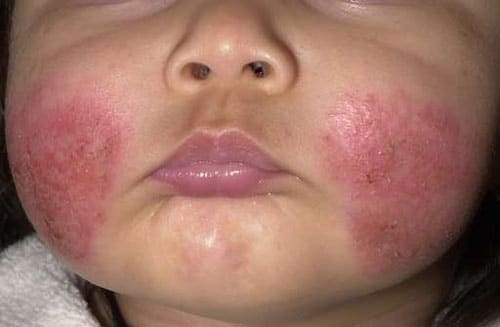Atopic dermatitis (or atopic eczema) is a chronic autoimmune inflammatory skin disease. Very common in children, in 65% cases it manifests itself in the first year of life, while in 90% it occurs up to the age of 5 years. There is a hereditary predisposition and children with a family history of allergies, asthma and atopic dermatitis are more likely to develop the disease. The disease usually resolves itself by puberty. Until then, the doctor with the appropriate medication and instructions regarding daily care and skin care helps to control flare-ups, keep the disease in remission and ensure that the little patient and his family have a good quality of life.
Patients with atopic dermatitis experience severe dry skin due to disruption of the skin barrier, allowing allergens and microbes from the environment to enter. The affected skin has intense redness (redness) and desquamation (fine peeling) and intense itching which also burdens the patient's sleep.
Below we suggest advice for the patient's daily life that should be followed in parallel with the medication recommended by the doctor:
- Daily a single and short bath with warm water,without using a sponge. We choose a special atopic dermatitis shower gel and shampoo. Additionally, use bath oil in the water.
- You wipe the bodydabbed without strong friction and apply a softening-moisturizing cream immediately after, on still damp skin.
- Avoid excessive heat in the child's room.
- Avoid exposure to cold and dry air or hot and humid weather in summer (use air conditioner)
- Use only cotton clothes and sheets in direct contact with the skin.
- Avoid using fabric softeners, fabric bleaches, perfumes and generally anything with color or fragrance
- Avoid possible food allergens, e.g. tomato, nuts during an exacerbation of the disease
- Avoid emotional (stress) and physical stress (intense fatigue, lack of sleep)
- Avoid scratching the lesions. Itching causes a desire for additional itching through irritation of nerve endings in the skin. It also increases the chances of contamination of the lesions with microbes. Keep nails short and clean, wear long-sleeved cotton rompers for infants to cover skin surface.

